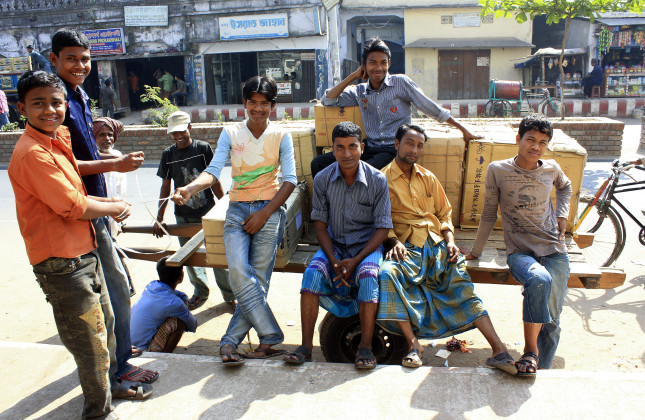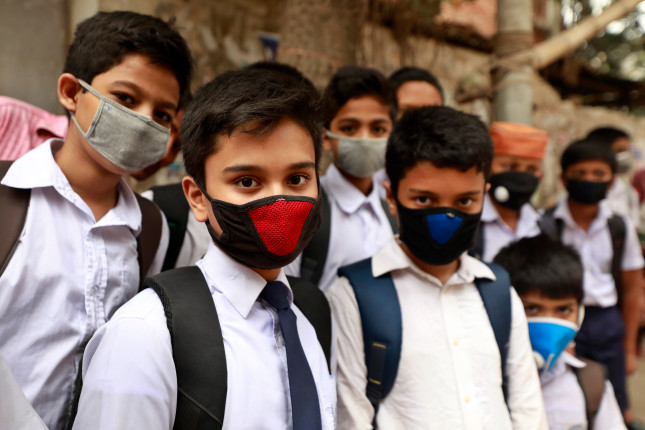-
Early Interventions in Men’s and Boys’ Health and Well-Being Have Lifelong Effects
February 10, 2021 By Hannah Chosid
“How do we incorporate more men into the work that we’re doing?” said Dominick Shattuck, Director of Monitoring, Evaluation, and Learning for Breakthrough ACTION at Johns Hopkins Center for Communication Programs (CCP), at a recent event hosted by the MenEngage Alliance. The event focused on interventions to meaningfully engage men and boys in health programming, and how “life course theory” can help determine the best timing for male engagement.
“Events that happen early in the life course can have lifelong and cumulative effects,” said Jeffrey Edmeades, founder of Demografix. According to the life course theory, interventions that target men’s and boys’ lives at critical transition periods are most effective at encouraging engagement in health programs. Gender plays a key role in society and in shaping our rules and norms, and masculinity is tied to the life course in different ways at different stages, said Edmeades. Intervening at transitional points in the life course can shape men’s and boys’ perception of gender roles and norms. For example, later adolescence is an important transitional point for boys because the norms of masculinity and expectations for sexual activity and risk-taking become more entrenched during this period, said Edmeades.
One example of such an intervention is a program in Bangladesh that created multiple television drama series with the intention of shaping male perceptions of health and well-being by utilizing gender sensitive and gender transformative approaches, said Faisal Mahmud, Deputy Chief of Party and Social and Behavior Change and Communication Advisor at Johns Hopkins CCP in Bangladesh. One series showed how men and boys can support their female family members and colleagues working as frontline healthcare workers during COVID-19, while another portrayed women as positive role models, such as teachers and club leaders. COVID-19 is shaping the life course for all demographics, presenting an opportunity to intervene and shape perceptions of masculinity, said Edmeades.

Ruchita Pillai, Monitoring and Evaluation Advisor of Breakthrough ACTION at Johns Hopkins CCP, discussed another approach in Zambia. This program sought to engage men and boys in health and wellness through “wellness days,” where men and boys could attend clinics once a month to seek health and wellness services. At adolescent wellness days, boys could receive counseling and services for family planning, sexual and reproductive health, and other general wellness needs, while men’s wellness days focused on engaging them in their children’s health and wellness. Researchers found that young boys who attended adolescent wellness days were more open about requesting health services, as well as more knowledgeable and proactive about their healthcare needs compared to boys who did not participate. Importantly, “5,000 family planning sessions were conducted, during which 560 adolescents became new users of a modern family planning method,” said Pillai.
“We need to not forget that the norms of masculinities, which are the key drivers of how life course stages are defined for men, and the needs within those, are socially defined,” said Edmeades. “Those can be changed as social definitions change. So programs should be aiming to redefine masculinity in ways that help men deal with this, and incidentally help women, of course.”
Sources: Breakthrough ACTION, Demografix, Encyclopedia of Adolescence, Johns Hopkins Center for Communication Programs, MenEngage Alliance
Photo Credit: Early morning curiosity, courtesy of flickr user Magalie L’Abbé. Viqarunnisa noon school students come out of the campus wearing masks after attending classes in Dhaka, Sk Hasan Ali/Shutterstock.com, All Rights Reserved.
 A Publication of the Stimson Center.
A Publication of the Stimson Center.




